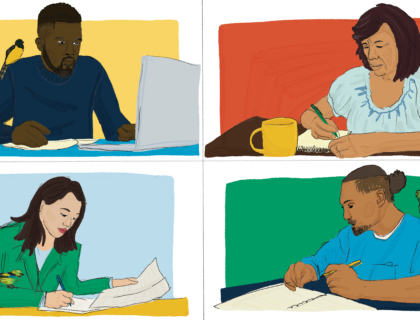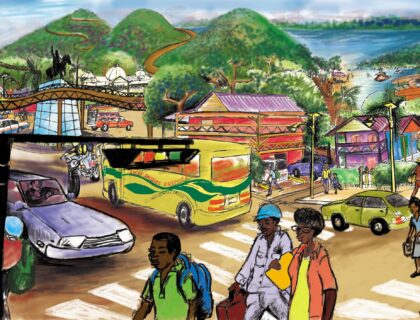retooling the human rights movement.
Advances in a range of disciplines – including forensics, anthropology, environmental science, public health, economics, data science, statistics, communications, and the arts – are transforming the methods used to conduct human rights investigations, research, and analysis. Indeed, new and evolving communication and information technologies have opened new opportunities for data collection, analysis, and exchange, revolutionizing approaches to human rights advocacy.
At the same time, growing public scrutiny over the legitimacy of international human rights bodies, historically dominated by the Global North, have driven efforts to diversify and decentralize the human rights initiatives of both intergovernmental bodies and civil society organizations.
The Center’s line of work on the human rights movement accounts for this shifting landscape within the international human rights regime, working with social leaders and grassroots organizations to fortify and enhance the resilience of the global movement for human rights.
reinvigorating tools and methodologies for global justice.
Through this line of work, the Center promotes new tools and methodologies to help the human rights movement adapt to a quickly evolving world. These tools and methodologies draw from a diversity of perspectives, experiences, and disciplines, including sociology, anthropology, technology studies, and other social sciences. Working with social movement actors, the Center applies these tools and methodologies to provide public goods for the human rights movement, including critical evaluations of fact-finding methods, assessments of the potential of data visualization tools in human rights advocacy, and examinations of the benefits and potential harms associated with using new technologies in human rights reporting.
ongoing projects

Project
Human Rights Resilience Project
Launched in 2015, the Human Rights Resilience Project is an interdisciplinary initiative co-led by Margaret Satterthwaite in collaboration with Sarah Knuckey of Columbia Law School and Adam Brown of Sarah Lawrence University and NYU School of Medicine to promote well-being and resilience among human rights workers. It does so with a research team of human rights lawyers and psychologists, who document and develop culturally sensitive training programs to enhance the mental well-being of human rights defenders operating in difficult contexts.

Project
Jailhouse Lawyer Initiative
The Jailhouse Lawyer Initiative seeks to disrupt cycles of incarceration and reconceptualize jailhouse lawyers as essential members of the legal ecosystem. JLI trains and supports jailhouse lawyers to be agents of empowerment for their communities so that they can transform justice from the inside out. This initiative operates as a partnership between the Global Justice Clinic, the Bernstein Institute for Human Rights at NYU, and the Legal Empowerment Advocacy Hub.

Project
Haitian Immigrant Rights
Since 2017, this project has worked with the Haitian immigrant community in New York to promote justice and empower members of the community. Rights Without Borders uses legal empowerment as a tool to fight the racism and anti-migrant policies that Haitians – and other black immigrants – are confronting across the Americas.

Project
Mining Justice and Self-Determination
A longstanding partnership between the Clinic and Haitian organizations, advancing the rights of marginalized populations and promoting transparency in mining.
past projects
The Human Rights Methodology Lab was a joint initiative with the Columbia Law School Human Rights Institute and Human Rights Watch to convene human rights practitioners and experts to discuss human rights research challenges and foster innovation in research methodologies.
In response to a shifting and increasingly complex human rights landscape, this initiative assessed challenges in human rights practice while also identifying and refining improved methods for fact-finding and evidence gathering.


